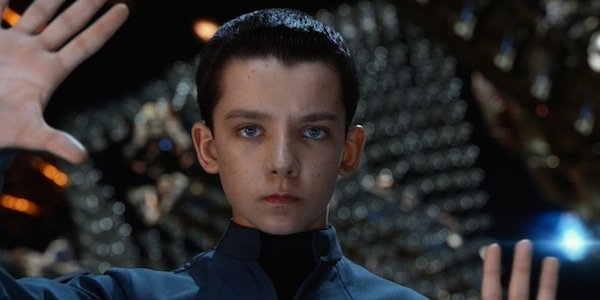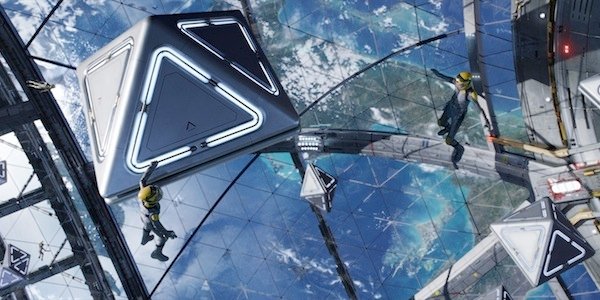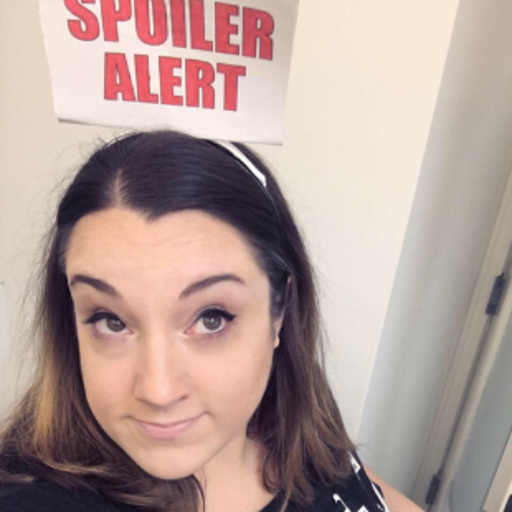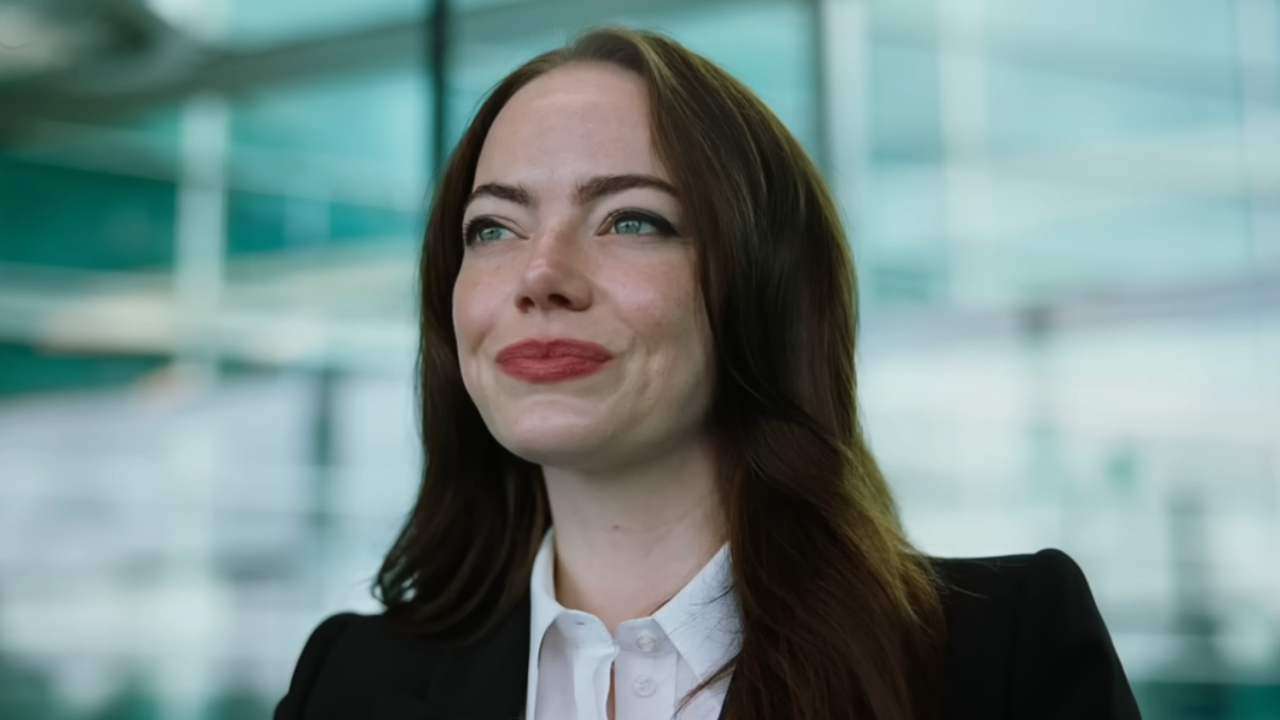Why Ender's Game Is The Best Possible Adaptation Of The Book

Comparing a film to the book on which it’s based is always a tricky task, as we all have our own mental visualization of how a story looks. My hopes for the feature adaptation of Ender’s Game were high, but I left the screening thinking that Gavin Hood’s adaptation did about as good a job as it could have with the source material, turning Orson Scott Card’s story into a movie without compromising the core message or the lead character. Ender’s Game isn’t a perfect movie, nor is it a page-by-page adaptation of the book, but it does the novel justice, delivering stunning visuals and much of the powerful message Card sends in the novel.
SPOILER WARNING: This article contains spoilers from the Ender’s Game book and movie! If you’re looking for a review that’s mild on spoilers, read our official review here.
Trailers for Ender's Game have been playing up the war and alien invasion side of the story, pushing visual effects more than anything and not being entirely clear about the story. Though I knew plenty about the intentions of the film, having spoken to the cast, director and producers, I still felt a growing concern that everything we were seeing in the trailers was an indication that impressive special effects would be the best thing we might be able to say about the adaptation, and that the story would come second (or not really at all). Hopes were high, but my expectations for the final product weren't quite so. The director and producers can tell you what they want for a movie, but there's no guarantee that the finished product will deliver. Fortunately, in the case of Ender's Game, it really does. And I'm not sure they could have adapted it any better.
The movie doesn’t try to be a perfect adaptation of the book. There are a few memorable moments and plots left out entirely, Peter and Valentine’s Demosthenes and Locke story included. But I don’t want to do a point-by-point list of what was changed, because I don’t really have any objections to them. Sure, they aged the kids up, but that seems like it would be necessary to condense the timeframe of the story. And the message board plot in the book did a nice job to set a more political tone to the story and add some Earth-set context to the Formic war, but the central story doesn’t change without it. And I could’ve watched Battle Room scenes for hours, but let’s face it, there’s a story to tell, so it seems necessary that the filmmakers condense Ender’s progression through Battle School, which unfortunately means we only get a couple Battle Room scenes. What we do get from those scenes pays off with some incredible visuals, including that breathless moment when Ender stares out into the zero gravity Battle Room for the first time, realizing he has to be the one to take the first blind leap.
As I mentioned, the trailers for the film went out of their way to push the visual effects and war aspect of the story, and having seen the movie in IMAX, I can understand why, as the film seems to be one great visual scene after another, separated only by Battle and Command school scenes that paint a detailed picture of the setting Card created for his story. The movie really does well to emphasize the setting as much as it does the story. Readers should appreciate the look and feel of Battle School and the occasional Earth-set scene emphasizing the futuristic backdrop of this story as much as they do the incredible battle scenes that fill the intense final act. But the story remains intact throughout. Ender is introduced to us as a target for bullies but a strategic genius. When he goes to Battle School, Graff makes sure that target remains on his back. pushing Ender to rise above with every challenge he faces until it’s time for him to lead.
The trailers for the film teased very little about Ender’s underdog status, but the movie does include a number of key moments there, including Ender being bullied when he gets his monitor off, and his struggles to acclimate himself to Battle School. That includes being immediately disliked by Bonzo the moment he’s promoted to Salamander Army, and the horrific shower scene that literally had me gasping even though I knew what was coming. If you’re worried that the film will hold back on violence, don’t be. There isn’t a major fight sequence between Ender and Bonzo, but to say that the outcome of the altercation is unsettling would be an understatement.
I get a bit more critical after the jump...
Your Daily Blend of Entertainment News

If I have one notable complaint about the film, it’s that it gets a little bit choppy at the end. The Mind Game is worked into the story earlier in the movie and it’s directly referenced at the end when Ender seeks out the Queen. But it does feel a bit wedged in, as if it needs to be explained to us because there wasn’t enough time to let it unfold a bit more organically. And there probably wasn’t, which is kind of ok, though I’m curious to know how people who haven’t read the book perceived the end of the movie. Having read the book, it makes sense to me, as Ender’s choice to save the last Queen is a demonstration of his compassion. And that compassion is already demonstrated throughout the movie through numerous moments when we see the softer side of Ender Wiggen, which usually come directly after a moment when we’ve seen his darkest side. So Ender's final scenes don’t come out of left field, but they do feel a little bit rushed, not so much as the ending of the movie, but as a fully satisfying conclusion of the story. With that said, I don't even know how they could have fixed that other than to include more Mind Game scenes in the story, which would've lengthened the movie, and might not be the best thing. The film's run-time is about perfect -- spoken as someone who often finds herself checking the time at around the two-hour mark.
What makes up for the above critique are the performances of the actors. Asa Butterfield is Ender Wiggin. He captures all of the things that make Ender such a fascinating character, from his tactical genius, his curiosity and of course, his compassion. Butterfield plays up every aspect of his character perfectly. Harrison Ford portrays Graff just as well, as the unsympathetic colonel who believes the ends justify the means in this war, even if it’s at the cost of a child’s innocence and sanity. Ben Kingsley's performance made me want more scenes with Mazer Rackham. Of course, introducing him sooner into the story would have probably been too drastic of an alteration. As a fan of Moises Arias from The Middle and Kings of Summer, I loved him as Bonzo. He’s perfectly unlikable. Viola Davis plays the sympathetic Gwen Anderson beautifully, not only in the way she seems to want to reach out to Ender when he’s in pain, but also in the way she serves as a contrast to Graff’s less empathetic approach to handling Ender. Anderson’s presence and occasional objections do well to show us that Graff’s lack of empathy is a choice and a manipulation strategy.
Hailee Steinfeld plays Petra well, which is a good thing, as her role seems to have been enhanced a bit, unfortunately at the cost of some of the other characters at Battle School. I would’ve liked more Bean, Dink, Alai and even Bernard. They’re all there, they’re all named, and they all get just enough screen time not to blend in with the rest of the Battle School kids, but Petra is clearly Ender’s closest friend at Battle School in the film. Abigail Breslin does just as well as Valentine, another female in Ender’s life looking to offer him compassion and comfort as he attempts to withstand the pressures of Battle and Command school.
This cast works, and that’s one of the reasons the film does too. Beyond that, great visual effects and an obvious understanding of the story are what allow Ender’s Game to rise above lesser successful adaptations of great novels. With all of the flashy visual effects and thrilling moments, the story could’ve easily gotten lost, and it doesn’t. Changes aside, the movie stays the course right to the end, never losing sight of the book’s message or of who Ender Wiggin is at his core, which is what makes the movie nearly as satisfying as the book and well worth the wait.

Kelly put her life-long love of movies, TV and books to greater use when she joined CinemaBlend as a freelance TV news writer in 2006, and went on to serve as the site’s TV Editor before joining the staff full-time in 2011 and moving over to other roles at the site. At present, she’s an Assistant Managing Editor who spends much of her time brainstorming and editing features, analyzing site data, working with writers and editors on content planning and the workflow, and (of course) continuing to obsess over the best movies and TV shows (those that already exist, and the many on the way). She graduated from SUNY Cortland with BA in Communication Studies and a minor in Cinema Studies. When she isn't working, she's probably thinking about work, or reading (or listening to a book), and making sure her cats are living their absolute best feline lives.
